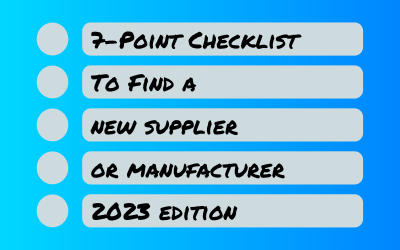Expanding into – or opening a new business in – Mexico will eventually have you thinking about the need to hire new employees. This will generally come in two forms:
- Relocating trusted people from the US.
- Hiring local workers. This is likely to be the majority of your workforce, unless you are in a very specialized industry.
Both of these come with their own unique challenges, both legal and procedural, and of course there is also etiquette and cultural differences to take into account.
So what exactly do you need to do and avoid when hiring employees in Mexico?
Your Business Must Be a Registered Legal Entity
Whether you are hiring foreign nationals or Mexican professionals for your company, it is a must that your business is considered a registered legal entity. You must be registered with IMSS (Mexican Social Security). A SAT registration is also required, which is similar to registering a company at the IRS in the United States.
This may seem like a simplistic point to start with, but if you don’t make sure you get this right, you risk scuppering your plans before they even begin. Remember, this is a foreign country, so the same leeway isn’t given to you as it might be at home in the US.
Sign the Correct Labor Contract
Be aware that there are four types of labor contracts in Mexico:
- Contract for a trial period
- Training contracts
- Contract bound by a predetermined amount of time
- Indeterminate time contract
Make sure that the contract you choose is the right one for your needs. Keep in mind as well that Mexican law stipulates a minimum of one day off per week for employees. If you have specific hour requirements or shift patterns, make sure you’re aware of any and all regulations around them, and clearly lay out expectations in the employment contract.
Complete Minimum List of Details to be Covered in Labor Contracts
Any employment contract you sign with a new hire should show the following details at the minimum:
- Worker’s and employer’s personal details, including name, nationality, gender, age, marital status, and complete address.
- Work schedule details, including expected hours and shift pattern.
- Wage details such as how much, how often, and method of payment.
- Time-frame of the employment contract.
- Precise description of the services required from the employee.
- Where the worker is expected to perform his job.
- Details of any training to be provided.
- Employment conditions and benefits such as vacation days, and anything else you might offer.
- Details surrounding the disciplinary process, and how that would progress.
- Details surrounding any mediation and conflict-resolution procedures.
Aside from these mandatory details, you would also need to include specific details around any non-disclosure agreements, non-competes, and any other legal issues, should they be applicable to your industry.
Obtain Recommended Requirements from Employees
As with any country, you also need to be able to prove at a moment’s notice that each of your employees are legally entitled to work in Mexico. This usually just means a scan of their ID card or passport.
Go through the Mexican Federal Labor Law
A good understanding of the Mexican Federal Labor Law and its most recent amendments will go a long way in making your hiring efforts in Mexico go smoothly.
It’s highly recommended to bring a specialist in Mexican labor law in as a consultant here, as these amendments do change, and simply speaking Spanish may not be enough. Note too that if you intend to bring foreign nationals into Mexico to work within your business, things can get quite complicated quite quickly.
Enroll your Employees in the Mexican Social Security Institute
When hiring employees in Mexico, businesses need to understand what workers are entitled to according to the law.
When enrolled in Social Security, employee contributions entitle them to benefits that may surprise you, such as daycare for their kids, and financial assistance with marriage or funeral costs.
This is of course also a tax requirement.
Open Mexican Bank Accounts
This step is often overlooked at the start, but will remove an enormous amount of red tape when it comes to paying wages, suppliers, and receiving payments. The sooner you open a Mexican account, the better – as a foreign national, the process can be complicated, and you don’t want to be in a position where you badly need the account, but you’re waiting for them to process documents.
No matter the size of your business, it is important to have a Mexican bank account.
Get to Know the Local Customs and Culture
Mexican employees have their own uniquely Mexican way of doing things, influenced by local customs and culture, that is very different to what you might be used to in the US. Taking the time to understand the working culture will not only help you avoid numerous headaches down the road, it will also ingratiate you with your workers, which will only help your business.
To the previous point, it’s also an excellent idea to learn Spanish, if you haven’t already. If your business intends to hire both local talent and import overseas employees, then perhaps offering some sort of Spanish classes to the transfers will help make the process smoother.
Conclusion
Whether you are employing just a handful of employees or want to build a large team, it’s important to know what you’re getting into, and prepare in advance in order to head off any problems before they even begin.
For assistance, get in touch with Mexican consultants who are reliable and highly knowledgeable about Mexico’s business, labor, and tax laws. Ensure that the professionals you work with are well aware of international trade laws as well.
Hiring employees in Mexico is truly an involved process and there are many challenges if you are not careful. But if you do things right from the start, you will find that the process of setting up shop in Mexico is easy.











